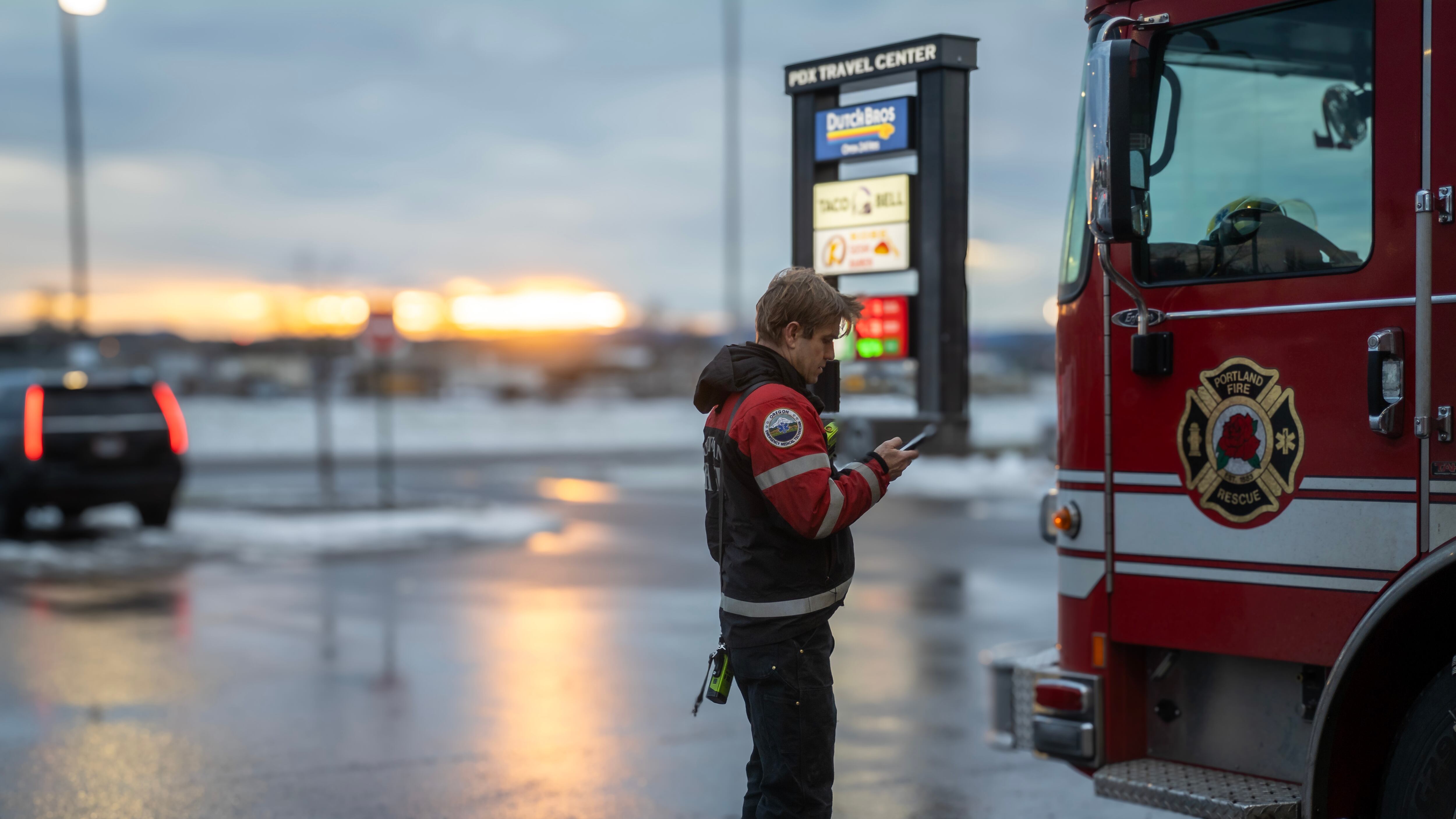Last week’s winter storm broke records for Multnomah County’s emergency dispatchers.
They fielded 1,236 fire and medical calls on Jan. 17, the most in recent history. The second-busiest day was four days prior, with 1,151 calls.
As a result, ambulances were scarce. Multnomah County hit “level zero 46,” an indicator of the backlog, at 10:50 am on Jan. 19, according to the city’s Bureau of Emergency Communications. That would suggest local emergency response had 46 calls outstanding at that time, although local agencies don’t agree on the measurements.
“In addition to navigating snowy and icy road conditions to report to work, our first responders were traveling in poor weather conditions to respond to calls in the community,” said a spokesperson for Multnomah County’s ambulance contractor, American Medical Response. “The weather challenges coupled with AMR’s severe paramedic shortages and record-breaking call volume led to delayed response times for dozens of callers.”
One fire truck reported waiting for 90 minutes on Thursday night until an ambulance showed up, Portland Fire & Rescue spokesman Rick Graves said.
One culprit: an increase in number of calls for help after falls, Graves said. The fire bureau typically responds to a few dozen a day. One day last week there were over 150, “most likely due to people trying to get places outside with the ice sheet,” he explained.
With ambulances in short supply, the fire bureau resorted to using their trucks to transport patients, a procedure that’s typically restricted but is allowable when the county declares an emergency, as it did on Jan. 16.
In one extreme case, Graves said, firefighters ran down the street to Legacy Emanuel Medical Center to grab a gurney—and, in lieu of a vehicle, rolled it back to the hospital across the ice, patient in tow.
If a patient was willing to wait, there was always another option: a cab.
“Radio Cab says it’s going to be at least three hours until they can get out there,” a dispatcher could be heard over the radio on early Saturday morning in audio reviewed by WW.
“Negative, that’s too long,” a firefighter replied. He’d wait for an ambulance.

